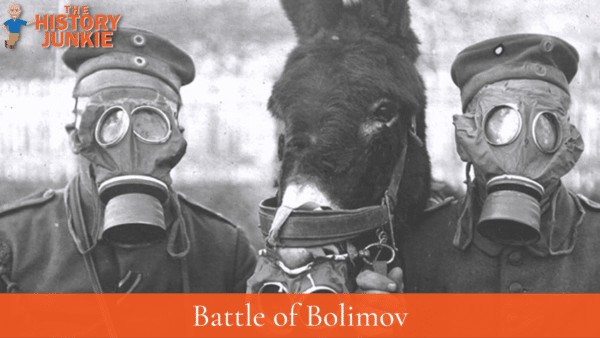The Battle of Bolimov was an inconclusive battle between the German Ninth Army and the Russian Second Army that took place on January 31, 1915.

The battle was part of the third German attack directed against Warsaw and was a necessary preliminary to the Second Battle of the Masurian Lakes.
The Battle
The attack was centered around the town of Bolimov in the plains to the west of Warsaw. The German force was led by August von Mackensen and the Russians by Smirnov.
The battle is chiefly remembered as the site of the German army's first extensive use of poison gas. The Germans fired several thousand gas shells, but the gas was blown back toward the German lines by the wind and failed to vaporize in the freezing temperatures.
As a result, the German attack was called off in failure.
The Russians, in turn, launched a number of heavy frontal counterattacks by some 11 divisions, suffering 40,000 casualties and achieving little. German artillery repulsed the Russian attacks with ease.
Although the Russians were aware that the Germans had attempted to use poison gas, its failure was such that it was not greatly remarked upon at the time and consequently was not widely reported to Russia's Allies in the West.
Poison gas was to make its next appearance on the better-suited Western Front, with much greater success, during the Second Battle of Ypres in April 1915.
In summary, the Battle of Bolimov was a costly failure for both sides. The Germans were unable to break through the Russian lines, and the Russians suffered heavy casualties in their counterattacks.
The battle also marked the first use of poison gas on the Eastern Front, but this tactic was not successful due to the cold weather.
